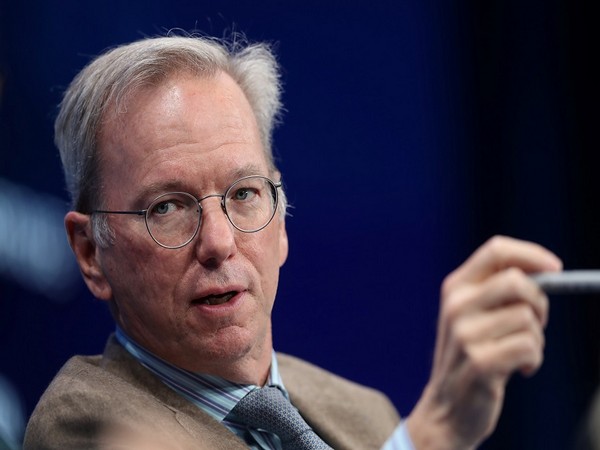Urgent need to counter China's growing tech dominance, says former Google CEO
Former Google CEO Eric Schmidt on Tuesday called on the US government to fast track the development of emerging technology including artificial intelligence (AI) to catch up to China's lead.

- Country:
- United States
Former Google CEO Eric Schmidt on Tuesday called on the US government to fast track the development of emerging technology including artificial intelligence (AI) to catch up to China's lead. The United States is "one or two years ahead of China, not five or 10" and "the Chinese are well ahead in areas like face recognition," said Schmidt during a hearing held by the Senate Armed Services Committee on emerging technologies and their impact on national security on February 23.
"Because of the diffusion of the technology, you have to expect that anything that's invented in the open-source AI world will immediately be adopted by China," said Schmidt, who is also the Chairman of the National Security Commission on Artificial Intelligence, adding "the threat is very, very real". Last month, a group of tech and policy leaders including Schmidt warned that China was "surging to overtake the United States in critical areas."
The group called the China Strategy Group published a report that proposes a number of urgent policy solutions that position the United States to out-compete China. "America's technological leadership is fundamental to its security, prosperity, and democratic way of life," the report said, "but this vital advantage is now at risk, with China surging to overtake the United States in critical areas."
The report, called "Asymmetric Competition: A Strategy for China & Technology," proposed for a degree of "bifurcation" in the US and Chinese tech sectors. The nature of the challenge, according to the report is asymmetric as "China plays by a different set of rules that allow it to benefit from corporate espionage, illiberal surveillance, and a blurry line between its public and private sector."
The US is heading towards separate tech spheres as some degree of disentangling is both inevitable and preferable, said the report. And added, "in fact, trends in both countries and many of the tools at our disposal inherently and necessarily push toward some degree of bifurcation because the alternative to bifurcation is a world in which China's non-democratic norms have 'won'." The report noted that the "decoupling" of the US and Chinese entities have gained bipartisan and industry-wide support since the Trump administration initiated the practice about three years ago.
The China Strategy Group has concerns that China is on its way to hold a competitive technological advantage over the United States and made recommendations for federal institutions to ensure that the US remains on top. "Technology is increasingly shaping the national security landscape," the authors wrote, "but our internal government structures are not optimized to address the new challenges posed by emerging technologies."
The group concluded that their assessments "are made with a clear-eyed recognition of the asymmetries that complicate our relationship with China and weaken the US position." Technological rivalry will dominate the 21st-century world. But so far, democratic nations have not yet acted in concert to shape standards and secure their infrastructure in the face of a strong authoritarian challenge.
In October 2020, a group of researchers from Europe, the US and Japan proposed a "tech alliance" of democratic countries in response to the Chinese government's use of technology standards and its tech sector as instruments of state power abroad. The proposal said the status quo of uncoordinated and reactive technology policymaking for the major democratic technology powers in Asia, Europe and North America means a growing risk of ceding their technological leadership.
The researcher argued that "having China's government dictate the terms of the global economy is in no one's interest but Beijing's. It would erode the economic and national security of most countries." The proposal, called "Common Code: An Alliance Framework for Democratic Technology Policy" has come up with a blueprint to establish digital privacy guidelines, secure supply chains and conduct joint research development. (ANI)
(This story has not been edited by Devdiscourse staff and is auto-generated from a syndicated feed.)
ALSO READ
Google Doodle Celebrates Senegal’s Independence Day 2024
US has not asked India to cut Russian oil purchases, American official says
US has not asked India to cut Russian oil purchases, American official says
Google enhances ChromeOS experience with M123 update
Indian American NSF Director Panchanathan to deliver 3 commencement addresses










